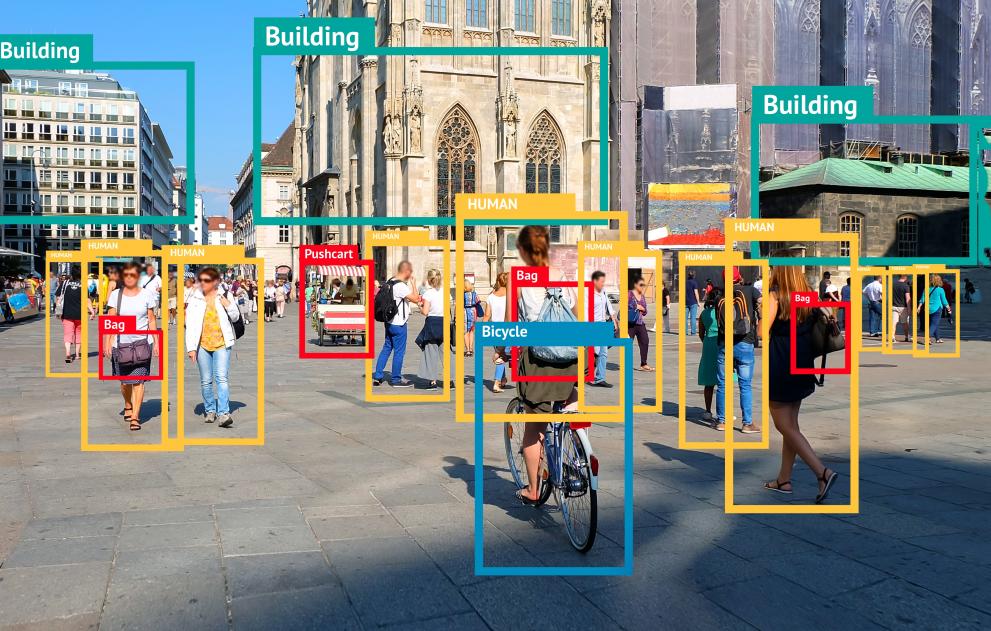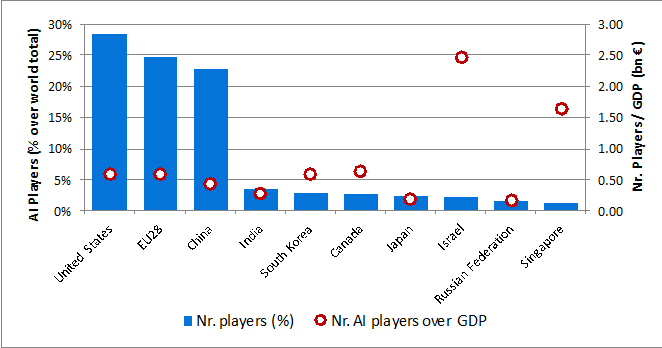
As early Artificial Intelligence (AI) applications, from machine translation to image recognition, enter our everyday lives and we begin to imagine life with autonomous vehicles and robo-advisors, Europe must act to shape its own AI future based on our shared vision.
If we don't act, AI's impact on our lives, our cognitive processes, our jobs and our interpersonal and societal relations will be decided elsewhere.
This is the main message of a JRC new report "Artificial Intelligence: A European perspective".
It aims to take stock of the development of AI in the world today and lay out some of the options and pitfalls for EU policymakers in the face of strong competition, and competing visions, from the US and China.
Benefits and concerns over AI
The report looks at recent developments in AI resulting from increased processing power, improvements in algorithms, and the exponential growth in the volume and variety of digital data.
It finds that while resulting applications of AI can be extremely beneficial, they also raise many concerns, especially in sensitive areas like political campaigning, human resource management or the criminal justice system. A key concern is that many AI techniques are like “black boxes” and we do not have a full understanding of their inner workings.
This limits the scientific analysis of algorithms, the capability to recover from adversarial events and complicates human supervision.
US, China, Europe - diverse approaches to AI
It is therefore all the more important what vision we follow in the development of AI.
According to the report, AI players are currently concentrated in the US, China and Europe, with distinct differences in their approach. In between 'AI for profit' and 'AI for control', Europe could embrace 'AI for society', and make fair AI systems which are 'secure and ethical by design' the hallmark of European development in this field.

Avoiding brain drain – a challenge for Europe
In this endeavour, according to the report, Europe can build on its strengths in research, robotics and automotive as well as data protection. If we nurture innovation in AI, we can attract top talent and support local initiatives.
Otherwise a brain drain from Europe will hamper our economic prospects.
For example, it is estimated that there are only some 22,000 PhDs worldwide on AI and 5000 researchers who have presented AI papers at scientific conferences, while demand exists for many more.
As a result, salaries are skyrocketing, and training talented Europeans without providing them incentives later on will only fuel the brain drain from Europe.
The threat of becoming a "data colony"
Another key question is the use of our data. If we assert European interests and values in how our data is used, our data can fuel our own economic growth. If we fail to do so, we risk ending up as a 'data colony'. Currently, the vast majority of data provided by European citizens, companies, and governments ends up outside Europe. We could take better control of our data and enrich it with semantic context, which is crucial to train new algorithms.
Jobs landscape will change
Last but not least, the report claims, AI will reshuffle the current jobs landscape with both losers and winners.
Either we invest in re-skilling and better education to help workers climb up the rungs of drudgery, or we will have tens of millions of European who cannot get jobs at all.
Coordinated strategy with a European flavour needed
The report concludes that if the EU wants to get AI right, it needs a coordinated strategy building on our strengths in research and industry; on our traditions in balancing the individual and societal interest, and on our diversity which could be harnessed through local data sharing ecosystems.
In particular, the EU's network of Digital Innovation Hubs could be central to the development of local ecosystems bringing AI training, data, computing and local partnerships together to develop AI solutions addressing local issues.

AI at the European Commission
The European Commission has set up the European High Level Group on Artificial Intelligence to draft ethics guidelines.
These draft ethics guidelines will be open for feedback from the European AI Alliance later in December. The Commission also presented its European approach to artificial intelligence in April 2018 and will present a coordinated plan on Friday 7 December 2018.
Related Content
JRC report: Artificial Intelligence: A European perspective
European High Level Group on Artificial Intelligence
Launch event, 5 December, 14:00: Artificial Intelligence: A European perspective (web streaming)
Details
- Publication date
- 5 December 2018
